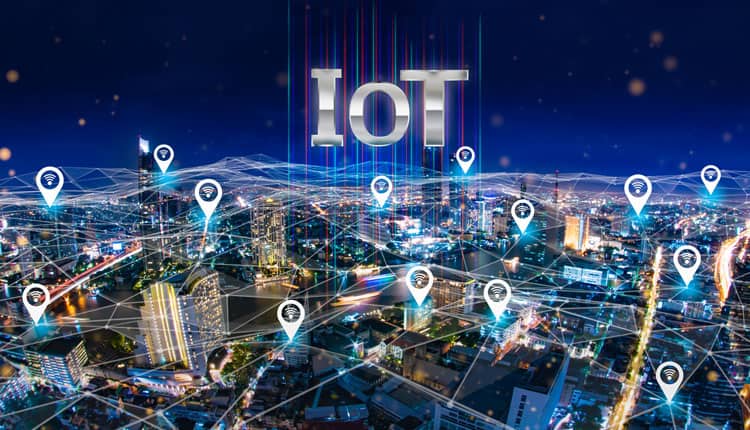By Kishan Jain, Director, Goldmedal Electricals
There was a time when owning a home, with the bare necessities, was considered a luxury in India. The availability of home loans however made home ownership a far more attainable dream for millions of Indians and fueled the growth of real estate in the country. As the market evolved, developers started to differentiate their offerings through luxurious amenities such as concierge services, swimming pools, gyms etc. And we’re now witnessing the dawn of a new paradigm in the real-estate sector – that of Home Automation.
Home automation as a concept has existed for a long time, but it is only over the past decade or two that the technological advancements necessary to make it a reality have become widely available – from smartphones to Wi-Fi, and more recently, the Internet of Things (IoT). Bolstered by these developments, home automation is on the cusp of a revolution – with a study by Allied Market Research estimating that it will grow to a $13.57 billion market in India by 2027.
Let us take a closer look at what makes home automation attractive to prospective homeowners:
Maximising Convenience
In a world of smartphones, tablets, and other Internet-enabled devices, we expect the world at our fingertips. Touch, tap, swipe – with these simple gestures, one can make phone calls and send messages, order products, check banking & other accounts, pay bills, and a lot more. So why shouldn’t we expect the same level of convenience when it comes to operating our home appliances?
Home automation solutions make this possible. With touchscreen controls and intuitive interfaces, homeowners can operate their smart home devices effortlessly. And when these devices are linked to your smartphones and tablets, you essentially possess a ‘master remote control’ for your home. Imagine being able to turn on your air-conditioner remotely while returning home from work or turning off your lights and fans, if you’d forgotten to earlier while on vacation! This level of control and convenience will increasingly become a basic expectation for homebuyers.
Driving Sustainability through Energy Efficiency
Sustainability is the way forward in every aspect of our lives. Indeed, it is a national mission for India, with our ambitious target to achieve Net-Zero carbon emissions by 2070. At an individual level, citizens can contribute to this laudable goal by making more sustainable choices for their families and homes. This is another area where home automation can add considerable value.
A home automation system enables you to make significant reductions in energy wastage at home, in a number of ways. Being able to remotely switch off lights and appliances when you’re not in the room (or even at home); automatically adjusting the intensity of lights or the setting of your thermostat; ensuring that multiple high-intensity appliances (such as electric ovens or dishwashers) aren’t in use at the same time – these are some of the energy-saving practices that home automation makes possible. Going one step further, IoT-based energy management systems can provide real-time power consumption data, which can help you further optimise electricity use and increase your home’s energy efficiency.
Ensuring Safety & Security
Home is supposed to be the ultimate safe haven, with safety and security as a key priority for every prospective homeowner. Home automation solutions deliver on this expectation as well. Smart home security systems offer an added layer of protection compared to traditional alarm systems. They can be customized to your specific requirements and inform you of any changes to your home’s security status through your smartphone.
Effective home automation enables you to control your doors wherever you are with simple voice commands or through your smartphone’s keypad. With a smart lock, you can be notified every time someone enters or leaves your home; while smart security systems can maintain records of every individual who visits throughout the day.
These smart home security features are invaluable for households with elderly residents and go a long way towards enhancing safety for seniors. For instance, presence-detecting switches turn on the lights when motion sensors detect someone entering the room. This ensures that an elderly person wouldn’t need to move around in the dark looking for the switch, thereby avoiding potential mishaps.
Reducing Costs
Last, but not least, a key advantage of home automation is its ability to save money for homeowners. Being able to switch off lights and other appliances either remotely through a smartphone or automatically when you leave the room significantly reduces your energy bills over time. At a deeper level, a home automation system could leverage predictive analytics to optimize your energy consumption in real time, leading to further savings.
Simple cost-saving actions – such as dimming the lights or adjusting the thermostat – which we often neglect to do, can be completely automated by these systems. The savings from home automation could potentially extend beyond the home itself. For instance, if you
forgot to lock the door or switch off the lights before leaving home, you can do so remotely and save fuel by not having to drive back!
The Future is automated
As we move towards a world where automation will play an increasingly greater role in our daily lives, home automation will undoubtedly become a priority for homebuyers during the purchase process. With their ability to make homes safer, more secure, and more sustainable, home automation solutions and smart homes will be a game-changer in the real estate market for years to come.



